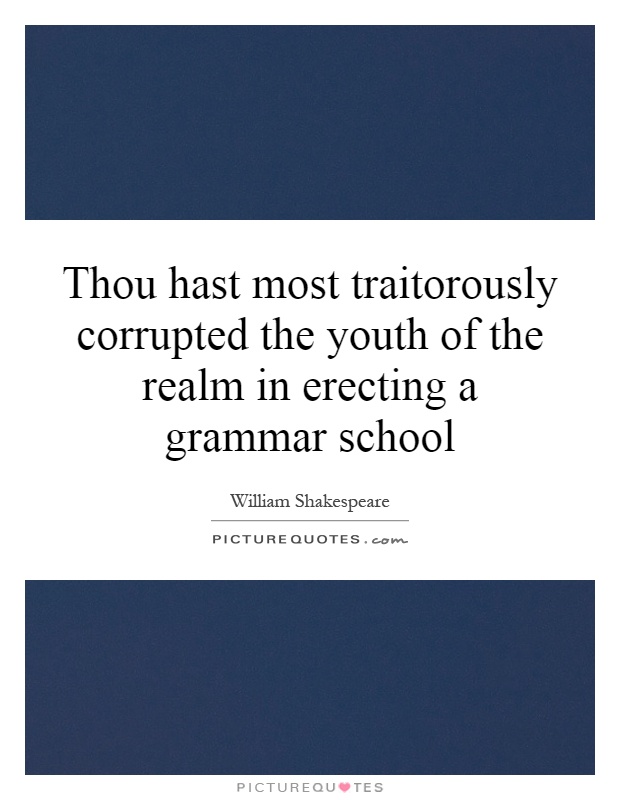Thou hast most traitorously corrupted the youth of the realm in erecting a grammar school

Thou hast most traitorously corrupted the youth of the realm in erecting a grammar school
In the play "Henry VI, Part 2" by William Shakespeare, the character Jack Cade utters the line, "Thou hast most traitorously corrupted the youth of the realm in erecting a grammar school." This line is spoken by Cade as he leads a rebellion against the ruling elite in England.The context of this line is important to understand the significance of Cade's words. In Shakespeare's time, grammar schools were institutions that provided education to the youth of the realm. These schools were seen as a way to educate the next generation of leaders and thinkers. However, Cade sees the grammar school as a tool of corruption, a way for the ruling class to indoctrinate the youth with their own beliefs and values.
Cade's rebellion is fueled by a desire to overthrow the corrupt ruling elite and bring about a more just society. In his eyes, the grammar school is a symbol of the oppression and control exerted by the ruling class over the youth of the realm. By educating the youth in a certain way, the ruling elite can ensure that their power and influence are maintained for generations to come.
Cade's accusation that the grammar school has corrupted the youth of the realm is a powerful indictment of the education system and its role in shaping the minds of the next generation. It raises questions about the purpose of education and who benefits from it. Is education a tool for liberation and empowerment, or is it a means of control and manipulation?
Shakespeare's portrayal of Cade's rebellion and his criticism of the grammar school reflect the tensions and conflicts of his own time. The play explores themes of power, authority, and the struggle for justice in a society rife with corruption and inequality. By questioning the role of education in shaping the minds of the youth, Shakespeare challenges his audience to think critically about the institutions that govern their lives and the values they uphold.












 Friendship Quotes
Friendship Quotes Love Quotes
Love Quotes Life Quotes
Life Quotes Funny Quotes
Funny Quotes Motivational Quotes
Motivational Quotes Inspirational Quotes
Inspirational Quotes